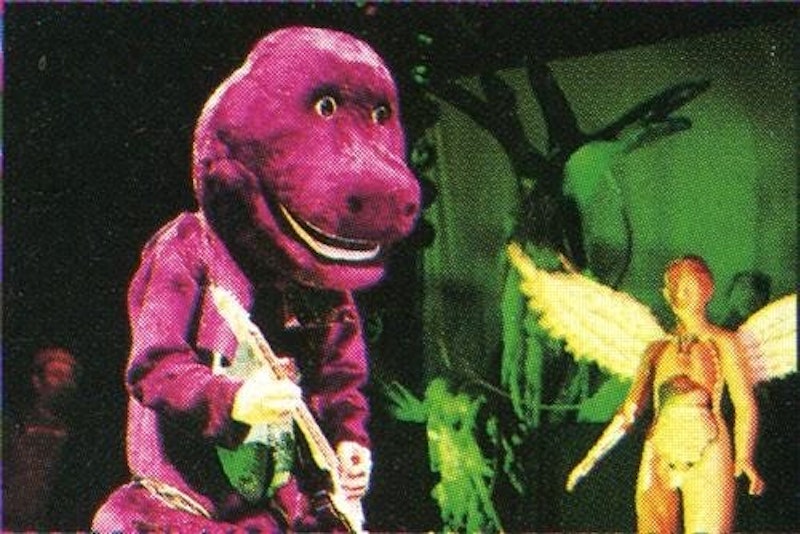It’s likely a coincidence, although one can’t be certain, that two sensational—in the tabloid sense—popular culture stories broke in the same week. First was the screwy announcement from Puffin Books (a division of Penguin Random House) that it was scrubbing the children’s books of Roald Dahl—whose ghost I hear grumpily protesting, “I never said I was bigger than Jesus!”—eliminating “offensive” words like “fat” from his collection, as well as tidying up language that today’s moral censors claim isn’t “appropriate” for modern kids and parents. My favorite of Dahl’s, as a dad reading to my young boys in the 1990s, was James and the Giant Peach, and I hope the title isn’t changed to James and the Health-Conscious Peach (“The Cloud Men” in the book are now “The Cloud People”). I was surprised by the British publisher’s knee-jerk “woke” move to retroactively edit Dahl’s books, only because the stakes are so low, but in an environment where six-year-olds are given picture books that explain abortion, the size of dicks and tits and transphobia, my naivete sticks out.
The other story, a fitting accompaniment to the Dahl Purge, was Mattel’s I-Love-You-You-Love-Me press release that it’s bringing back Barney the Dinosaur, this time as an animated series rather than live-action. I have no quarrel with The Other Purple One; Barney’s PBS program, and especially the VHS tapes, was a de facto babysitter for my wife and me a generation ago; the kids, until they were around three and moved on to Dr. Seuss (another posthumous victim of editorial tinkering, although it increased sales), sat transfixed at the dopey Barney and his pals, which gave us time to drink coffee, read the morning newspaper and prepare for work. The show was just awful shit—unlike Britain’s trippy Teletubbies, which I dug—but if young Nicky Otis wanted, at two, to watch and re-watch Barney’s Christmas special, even in July, who was I to deny that pleasure? We figured, with a measure of sanity that’s apparently no longer widespread, that the boys would shift to other viewing habits in due course—like those R.L. Stine Goosebumps books and videos (which I enjoyed as well, and they were a lot scarier than any of Dahl’s tot-offerings) and then shows like Doug, Arthur and The Magic School Bus (I wonder if the fearless Ms. Frizzle will get a makeover soon)—and that’s what happened, no worse for wear.
Censors were in every dark corner of the country when I grew up, but thank the Lord no one touched Our Gang (aka The Little Rascals)—prime blacklist fodder today with the characters Stymie, Chubby, Buckwheat, Farina and the ever-alluring Miss Crabtree—or Donald Duck taking on the Nazis. (The other night I watched a 1965 episode of Mr. Ed, “My Horse, the Mailman,” with my son Booker, in which Wilbur interacts with a black mailman and if any of the pro-Dahl censors took the time to delve into my favorite Talking Horse’s show, that USPS worker, who’s given dialogue that’s straight from Amos ‘n’ Andy, would disappear.)
I cracked up reading the following from a Wall Street Journal shortie about Barney: “By playing into nostalgia, well-known brands and franchises may lead viewers and customers to hark back to what may have been simpler times, said Keith Niedermeier, clinical professor of marketing at Indiana University’s Kelley School of Business… [T]he new Barney comes as some millennials who grew up with the character have children of their own who may be ready to watch similar content, Dr. Niedermeier said. ‘When there’s so much conflict and so much post-Covid strife going on, I do think coming back to a franchise that is all about this simplicity and happiness and peacefulness in this space is really well-timed,’ Dr. Niedermeier said.”
The two (!) reporters who gussied up this Mattel press release didn’t speculate as to whether Dr. Niedermeier doubles as a consultant to book publishers, such as Puffin, on which titles need a bath to wash away the grime that apparently is neither simple nor peaceful. What kid isn’t “ready” to watch the saccharine (but not sugary!) Barney prance around? And I assume Dr. Niedermeier was sentient in the 1990s and knows, like any decade, the idea it was “simpler” and “peaceful” is ridiculous.
Who’ll be the next in line—if not The Kinks—for the digital white-out? There’s John Donne’s erotic poetry, like “The Flea,” but he was born in 1572 and no one reads him anymore. Same, too, for Lord Byron’s “She Walks in Beauty,” although I’m not sure he’s allowed in high school or college curriculums today. John Barth’s The End of the Road (1958) is trickier: a witty novel that includes abortion, segregation, nihilism and sex, so that could go either way. Again, presuming anyone reads that great American writer anymore. Maybe the Puffin scolds could propose a friendlier, happier copy of Mein Kampf; Ezra Pound stripped of anti-Semitism; the further elevation of a sexually-liberated (maybe a madam?) of Hester Prynne; or a reassembling of The Warren Commission Report. The immediate reaction from some justifiably horrified Dahl champions—and other targeted writers, but not Stephen King!—was recommending buying up threatened books in bulk, to beat the censors, but that won’t work. More likely is a reaction, from both left and right, that enough is enough, and a corner will be turned.
As I write, on Tuesday afternoon in Baltimore, it’s pouring but the sun is out, a brilliant (very Thoreau) “the devil’s beating his wife” 10-minute sequence, and I’m perplexed about that, too. About a month ago I was in a coffee shop when there was a similar occurrence and as I made small talk about the “devil” old saying with a friend there, she looked at me with a blank face. It’s as if I said, “Don’t flip your wig, sweetheart!” but I didn’t, since getting arrested or fucked with by vigilantes wasn’t on that day’s agenda.
—Follow Russ Smith on Twitter: @MUGGER1955

